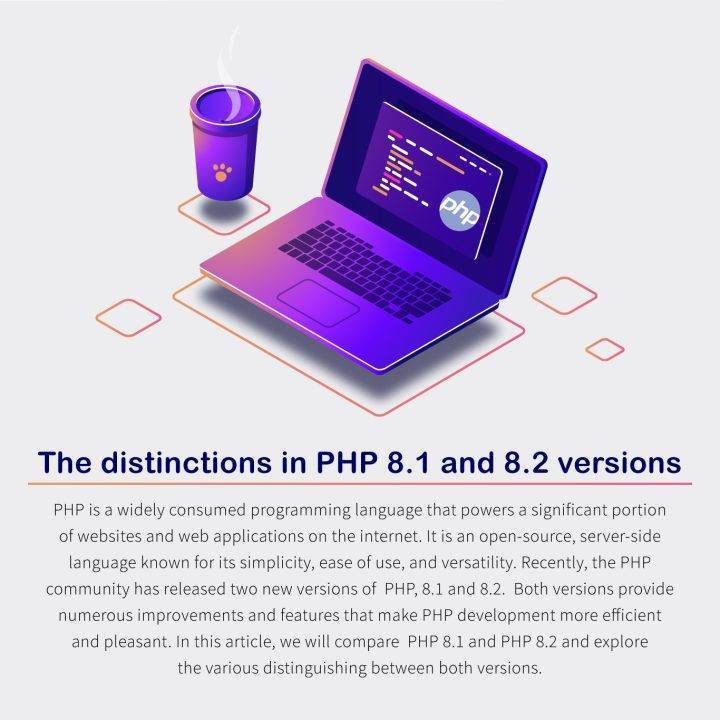
PHP is a widely consumed programming language that powers a significant portion of websites and web applications on the internet. It is an open-source, server-side language known for its simplicity, ease of use, and versatility.
Recently, the PHP community has released two new versions of PHP, 8.1 and 8.2. Both versions provide numerous improvements and features that make PHP development more efficient and pleasant. Here, we will compare PHP 8.1 and PHP 8.2 and explore the various distinguishing between both versions.
- Firstly, for starters, both PHP 8.1 and 8.2 are backwards compatible with older versions of PHP. This means that any code written in prior versions of PHP will work fine in the current ones. However, checking for deprecated functions or features and updating your code accordingly is always a good idea.
- One of the significant changes in PHP 8.1 is the addition of named arguments. This feature allows developers to specify arguments by name instead of position, making the code more readable and easier to maintain.
- Additionally, PHP 8.1 comes with the Fibers feature, which enables lightweight user-space threads and improves concurrency in PHP applications. This is particularly useful for building applications that require asynchronous programming. On the other hand, PHP 8.2 brings some exciting new features as well.
- One of the most notable features in PHP 8.2 is the Just-In-Time (JIT) compiler. This feature compiles PHP code to machine code at runtime, improving the performance of PHP applications significantly.
- Another useful feature in PHP 8.2 is the Str_contains() function, which allows developers to check if a string contains a specific substring without using regular expressions.
- Aside from these significant features, both PHP 8.1 and 8.2 come with many other improvements and bug fixes. These improvements include better error handling, enhanced performance, and improved type safety.
In conclusion, both PHP 8.1 and 8.2 come with several new features and improvements that make PHP development more efficient and enjoyable. The choice between these versions largely depends on the specific needs and requirements of your application. However, it is always recommended to use the latest version of PHP to take advantage of the latest features and security fixes.
